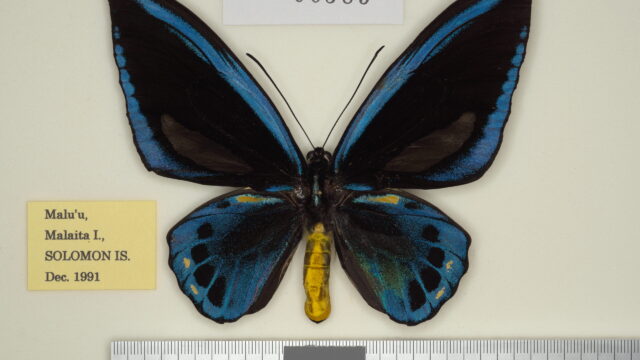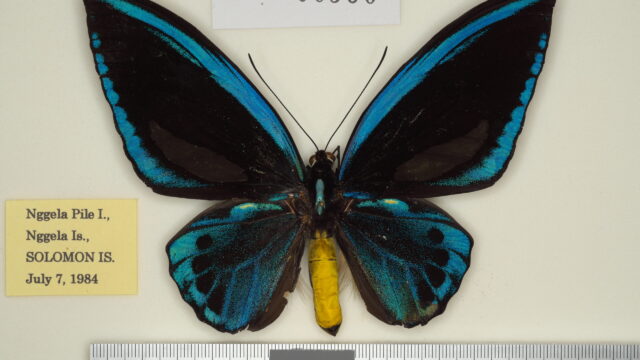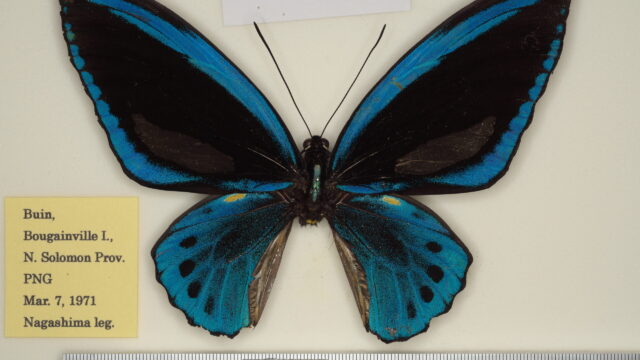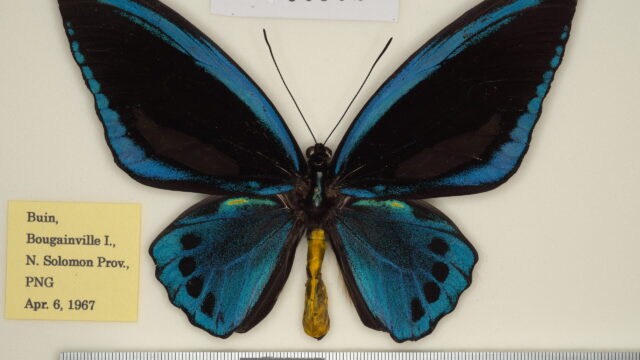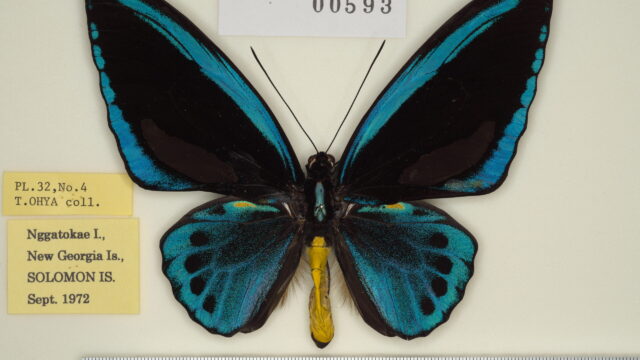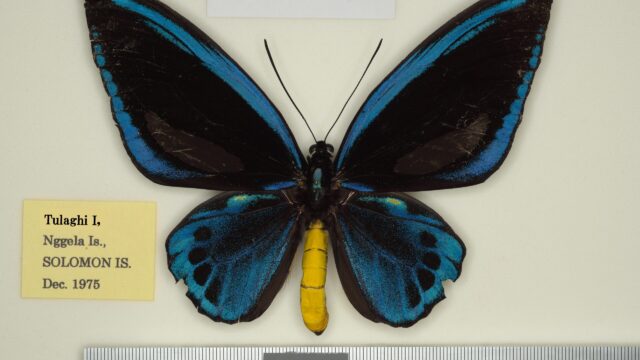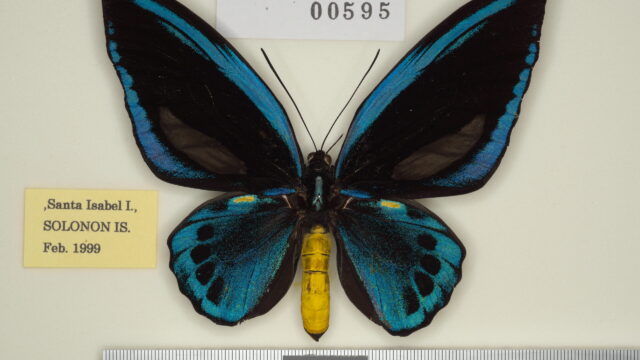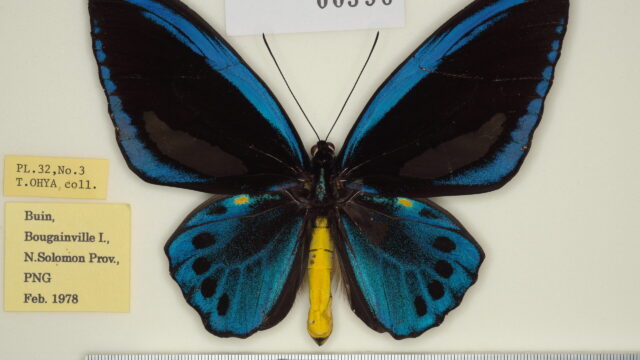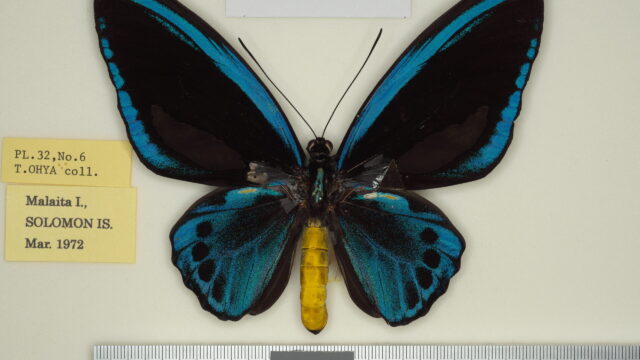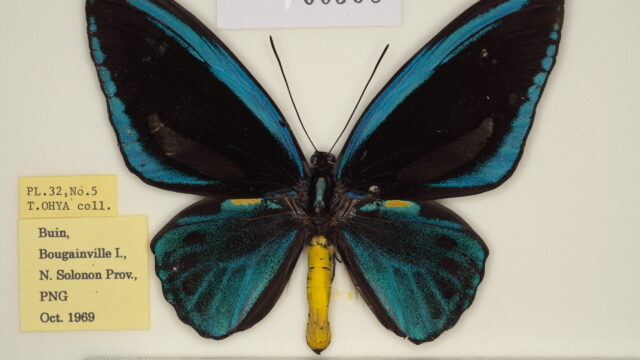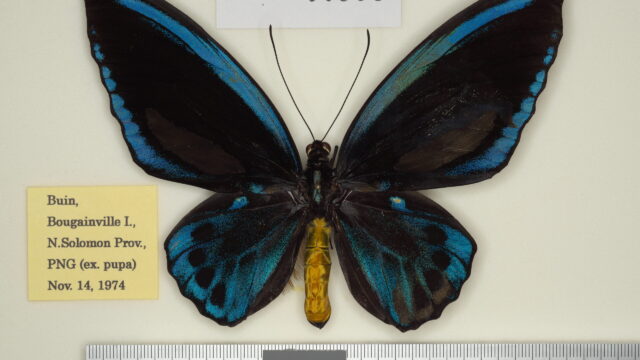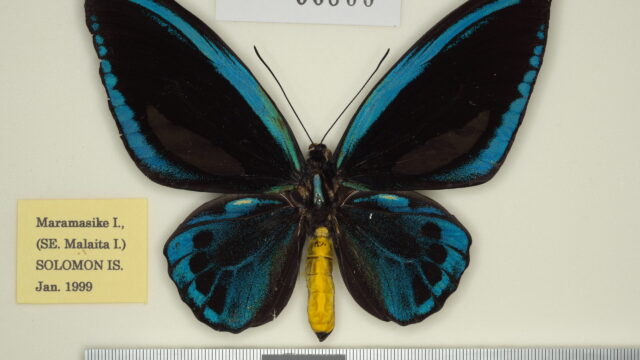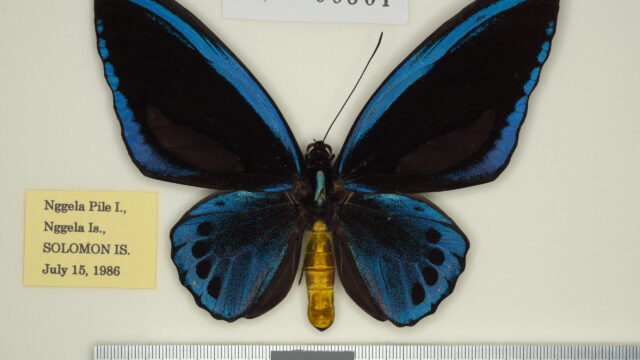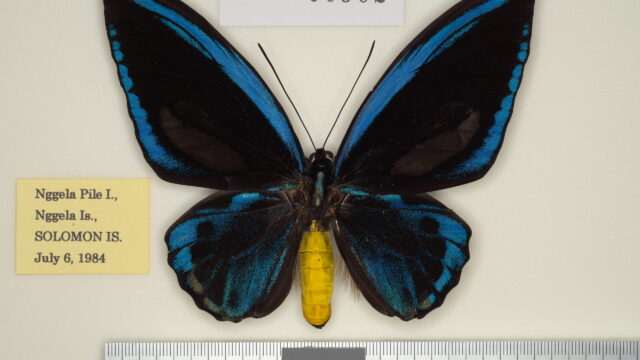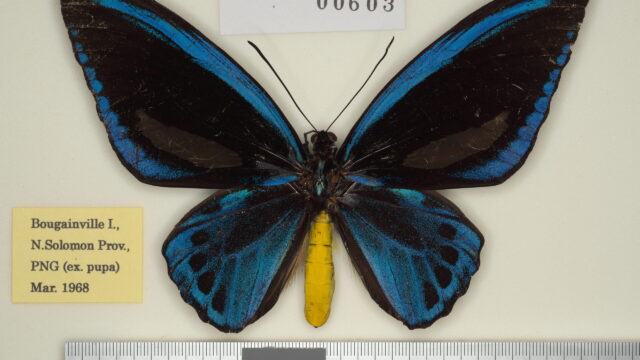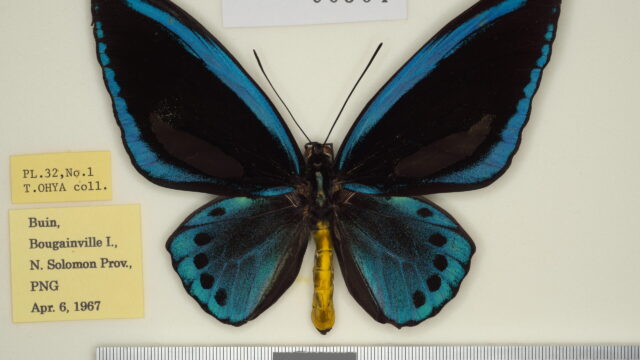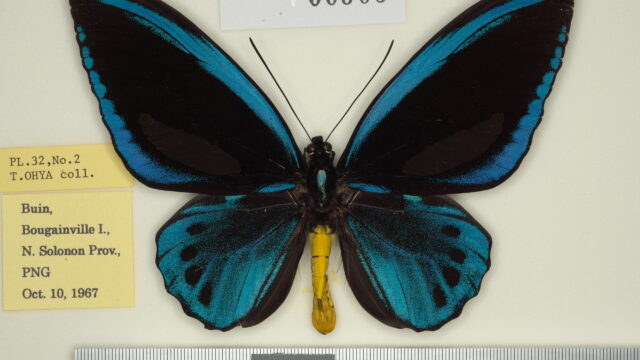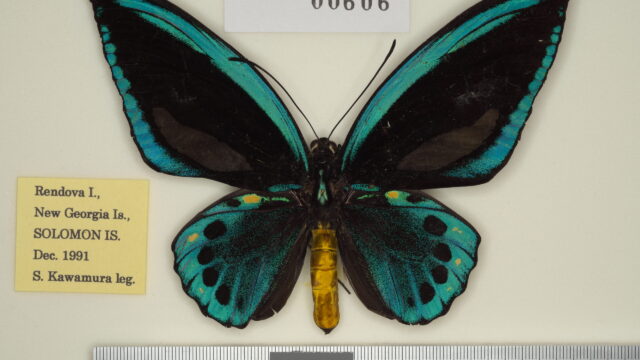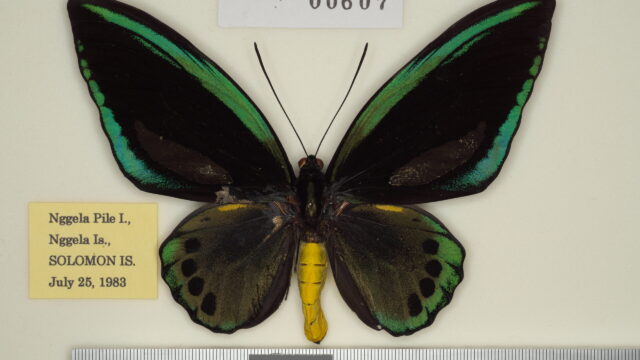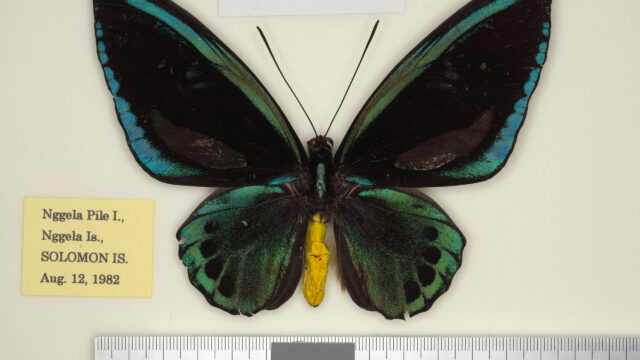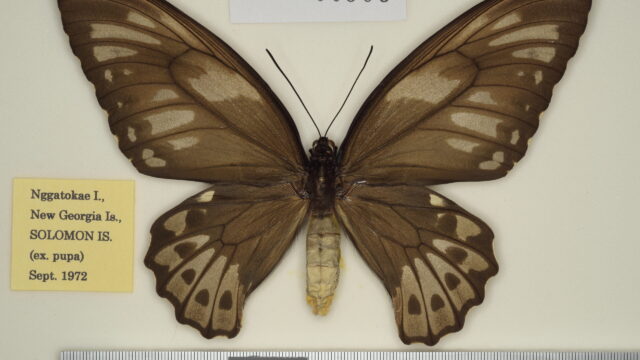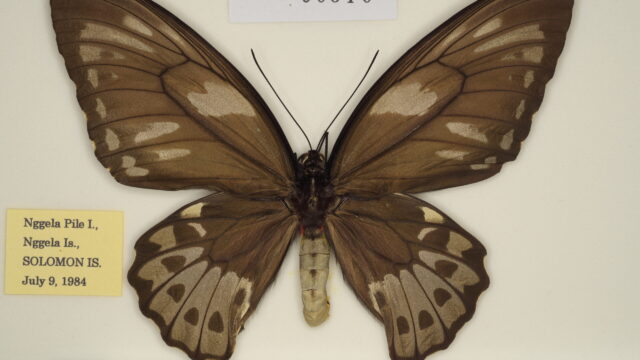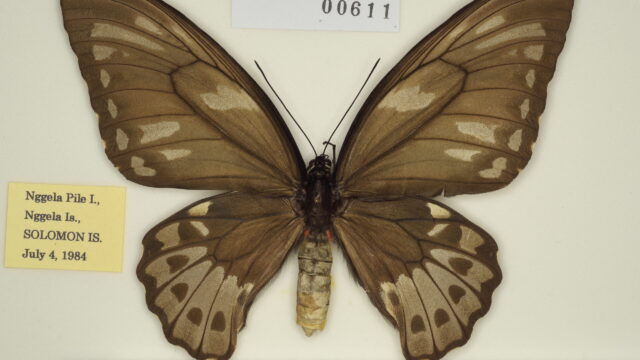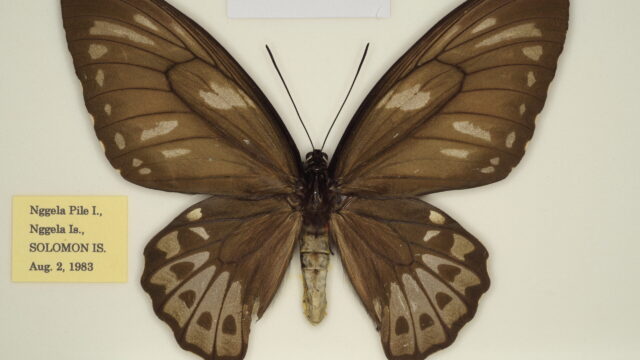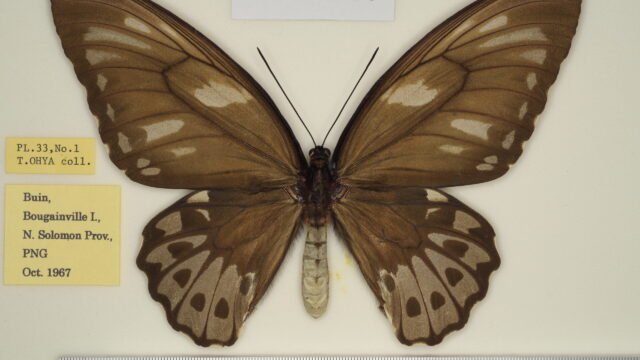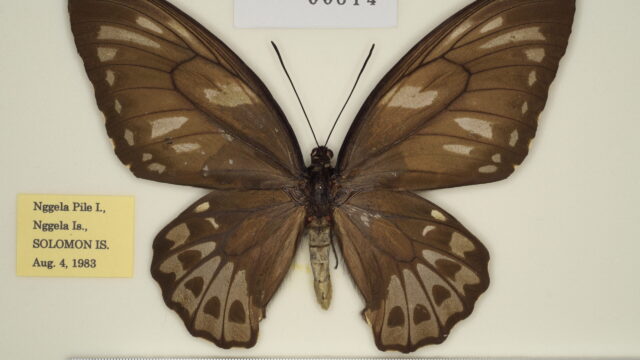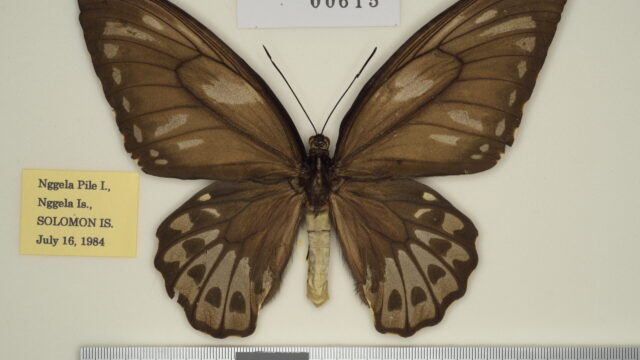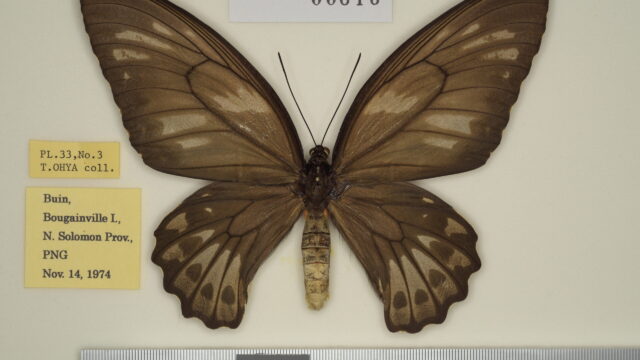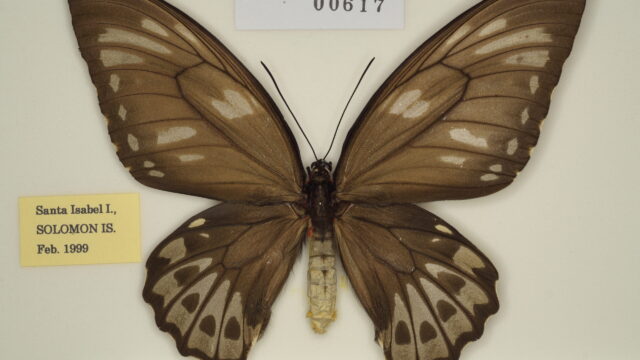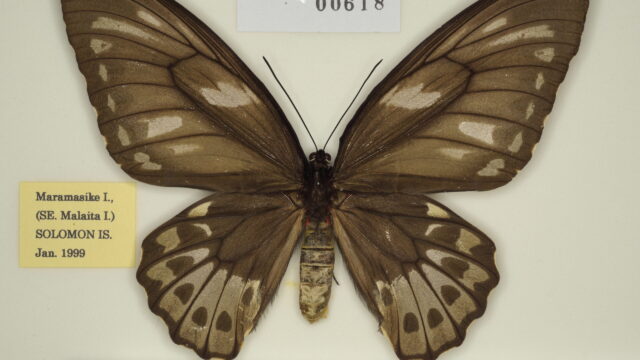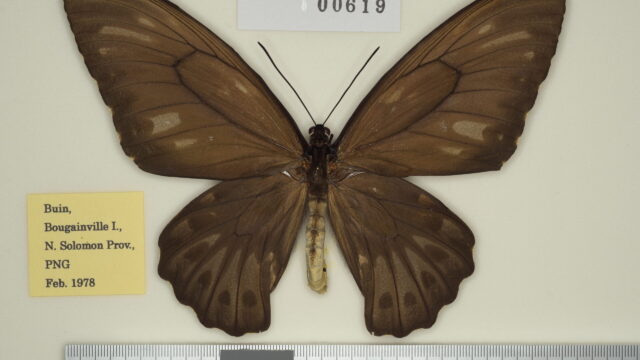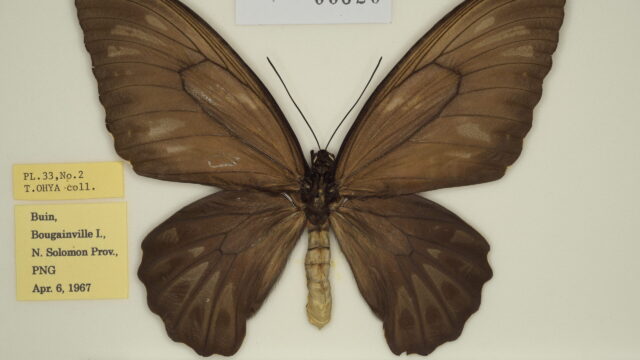- Ssp. urvillianus (Guérin, 1830)20) [♂] [♀: urvilliana Salvin & Godman, 187754)]
= urvilliana, Salvin & Godman, 187754) [♂, ♀] (New Ireland Is.)
= burkei (Clark, 1944)5) [♂, ♀] (S. Solomon Islands)
(Distribution) [Map 26]
PNG [NIP] St. Matthias Islands (Mussau Is.), New Hanover Is., New Ireland Is., Tabar Is., Lihir Islands (Lihir Is.), Tanga Islands (Malendok Is.), Feni Islands (Ambitle Is.), [NSP] Green Islands (Nissan Is.), Buka Is., Bougainville Is.; SOLOMON ISLANDS: Shortland Islands (Fauro Is., Shortland Is.), Treasury Islands (Mono Is.), Choiseul Is., Vaghena Is., New Georgia Islands (Vella Lavella Is., Mbava Is., Ranongga Is., Ghizo Is., Kolombangara Is., Vona Vona Is., Rendova Is., Telepare Is., New Georgia Is., Vangunu Is., Nggatokae Is.), Ghaghe Is., Santa Isabel Is., Mbero Is., San Jorge Is., Russel Islands (Mbanika Is.), Savo Is., Guadalcanal Is., Nggela (=Florida) Islands (Mbokonimbeti (=Sandfly) Is., Nggela Sule Is., Nggela Pile Is., Tulagi Is.), Malaita Is., Maramasike Is., Ulawa Is.
(Episodes of discovery and original description)
The first specimens were collected in Port Praslin, New Ireland, during the scientific expedition of the French warship “Coquille” (1822-1825). The report of this survey consists of three parts: Crustacea, Arthropoda, and Insecta. The title of the illustrations dates from 1826, the insects from 1830-1832, and the text from 1838. This is a report on insects, with Duperrey as the representative, and Guérin, who described urvillianus, changed his name to Guérin-Méneville when he wrote the text. The publication of the illustration here was the first report of the species. The description of the ♀ was given by Salvin and Godman (1877), based on specimens collected by Brown in New Ireland. Note that urvillianus is dedicated to J.S.C. Dumont d’Urville, a naturalist who also collected insects during this scientific survey.
(Characteristics)
It is the eastern limit of the distribution area of all Birdwing Butterflies (the end of the first route). The distribution is also vast, extending about 2,000 Km in a straight line. As a result, there is no uniformity in the color variation of markings of the ♂ specimens. In general, the ♂ of this subspecies is greenish blue in the northwest but tends to become darker blue as it moves to the southeast.
(Spotted pattern)
♂: Resembles ssp. miokensis, the FW has pointed apex, but the HW is more rounded. On the FW, the radial band is narrow, the anal band is small and not connect to the submarginal band. The median stripe is absent. On the HW, black discal spots are round and large, and black marginal border is broad and appear double in some individuals. Subcostal golden spot is present in about half of the species.
♀: Dull (=pale) form only. Very similar to ssp. miokensis and difficult to identify between the two.
(Variation)
♂-f. radiata Rousseau-Decelle, 193553): [Aberrant FW pattern] FW with blue scales along the median vein and the adjacent V1b -V3rd. This is the same variation as ssp. bornemanni ♂-f. viridilineata Haugum & Low, 197921).
♂-f. flavomaculata Ribbe, 189845): [Aberrant HW pattern] HW with subcostal semi-translucent golden spot. (Almost half of this subspecies belongs to this variation.)
♂-f. viridescens (Kaiser, 1917)25): [FW/HW discoloration] Green iridescent color instead of typical blue.
♂-f. burkei (Clark, 1944)5)(=cyaneus Deslisle, 20047)): [FW/HW discoloration] Deep blue iridescent color instead of typical blue.
♂-f. sapphirinus Deslisle, 20047): [FW/HW discoloration] Pure blue iridescent color instead of typical blue.
♂-f. kamei Deslisle, 20047): [Particular aberration] Black marking of both wings almost missing. The color of patches is light bluish purple. HW with a large subcostal golden spot and a row of submarginal golden spots.
♀-f. fuscapallida Rousseau-Decelle, 193553) (=sapphirinus Deslisle, 20047)): [Aberrant FW/HW pattern] The ground color of the wings is pale yellowish-brown, with FW spots lost and HW pale band dark and indistinct.
♀-f. pallidus Deslisle & Sclavo, 201510): [Aberrant FW/HW pattern] FW spots are unusually large, and the cell-spot occupies the upper half of the cell. HW pale band also extends, but dark discal spots are vestigial or missing.
